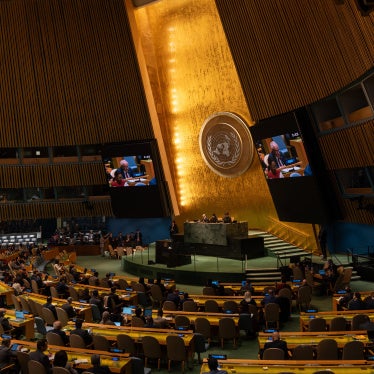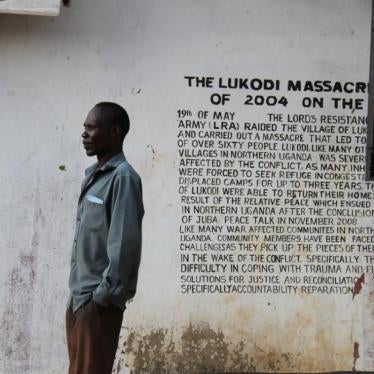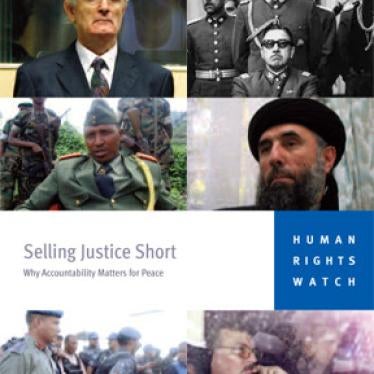On the 50th anniversary of the Geneva Conventions [August 12, 1999], Human Rights Watch hailed the emergence of a new era of enforcement of the important protections codified a half century ago.
The international monitoring group pointed to tribunals to judge the perpetrators of war crimes and other atrocities in Rwanda and the former Yugoslavia, as well as the decision last year by 120 countries to establish a permanent International Criminal Court to examine future cases of war crimes, genocide and crimes against humanity.
"We are seeing a new international resolve to deal with war criminals," said Kenneth Roth, the Executive Director of Human Rights Watch. "As Slobodan Milosevic has recently learned, its not as easy to get away with war crimes as it used to be."
At the same time, the New York-based group called on the world community to step up efforts to bring other major war criminals to justice.
"In Sierra Leone, rebels who systematically hacked off the limbs of civilians are now being given amnesty," said Roth. "In the Congo, a cycle of impunity has encouraged all sides to continue committing war crimes."
The four Geneva Conventions of 1949, and their protocols, set forth the "laws of war," the international humanitarian law that governs the conduct of parties to international conflicts as well as civil wars . They seek to protect persons who are not or are no longer taking part in the hostilities, and to restrict the means of warfare employed. The Geneva Conventions are among the most widely ratified treaties in the world, with 188 states parties.
The conventions establish important protections for prisoners of war and those wounded on the battlefield. They also prohibit violence and inhumane treatment against civilians and bar the use of deportation and starvation against residents of occupied territories. In 1977, additional protocols to the Conventions updated the treaties for an era of air war with prohibitions on indiscriminate attacks and attacks with a disproportionate impact on civilians. Human Rights Watch recently cited these prohibitions in protesting NATO's targeting of civilian objects during the Yugoslavia war and in questioning whether, even when attacking legitimate military targets, NATO was taking all feasible precautions to avoid harm to civilians.
Human Rights Watch has played a leading role in incorporating the Geneva Conventions into human rights monitoring. The traditional human rights law principle of the "right to life" is difficult to apply a wartime context in which some killing is deemed legitimate. International humanitarian law, however, provides detailed rules to assess the proper conduct in warfare of both governments and armed opposition groups. In the past year, Human Rights Watch has reported on abuses in conflicts in the former Yugoslavia, Sierra Leone, Colombia, Afghanistan, Sudan, the Democratic Republic of Congo and Israeli-controlled South Lebanon.
Human Rights Watch also called for the speedy ratification by 60 states which would allow the International Criminal Court to begin operations. To date, 83 countries have signed the court's treaty and four have ratified it. The United States has objected to the treaty, however, and vowed not to support it unless changes are made which would allow it to block any prosecutions of Americans accused of war crimes.







